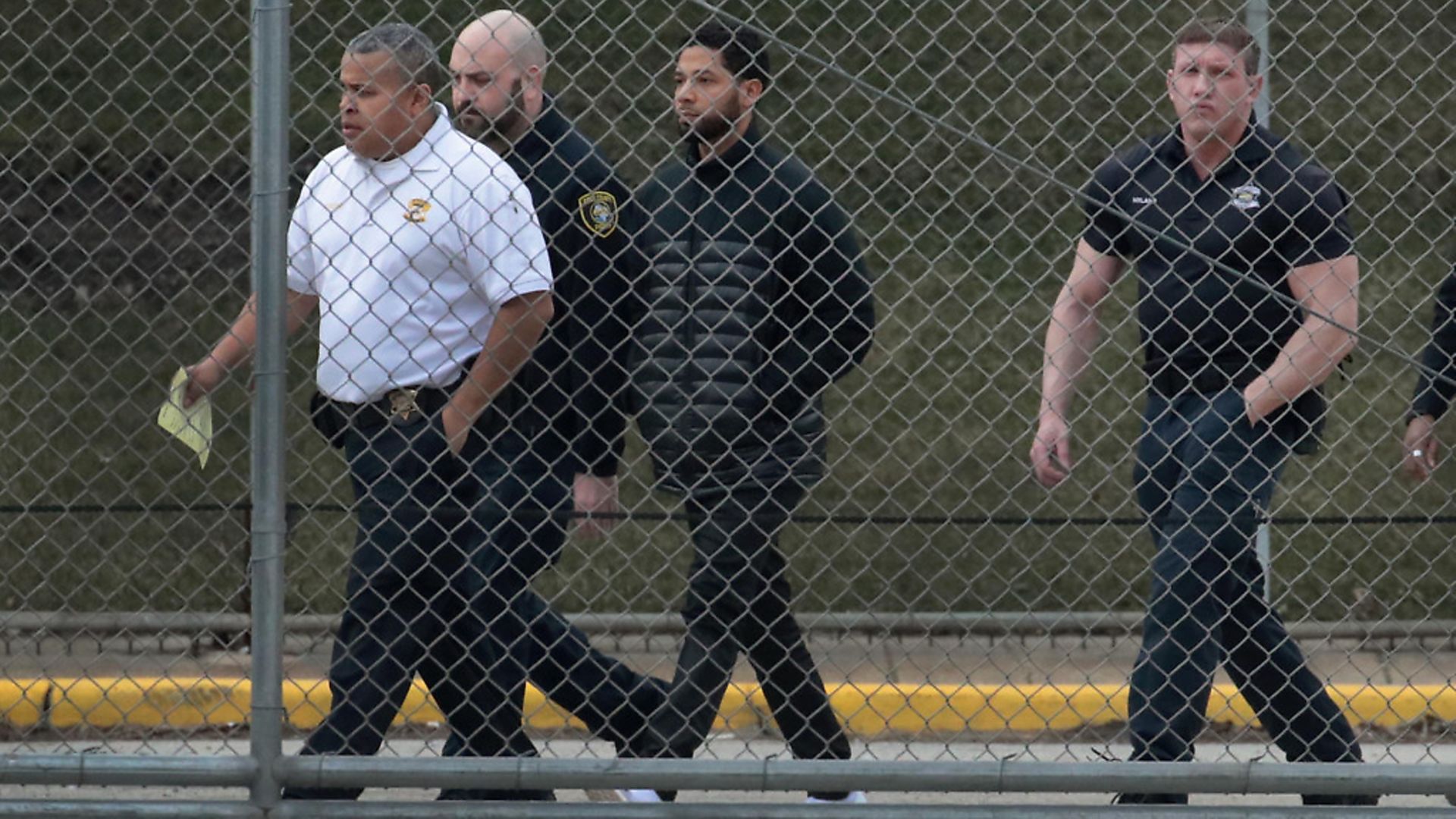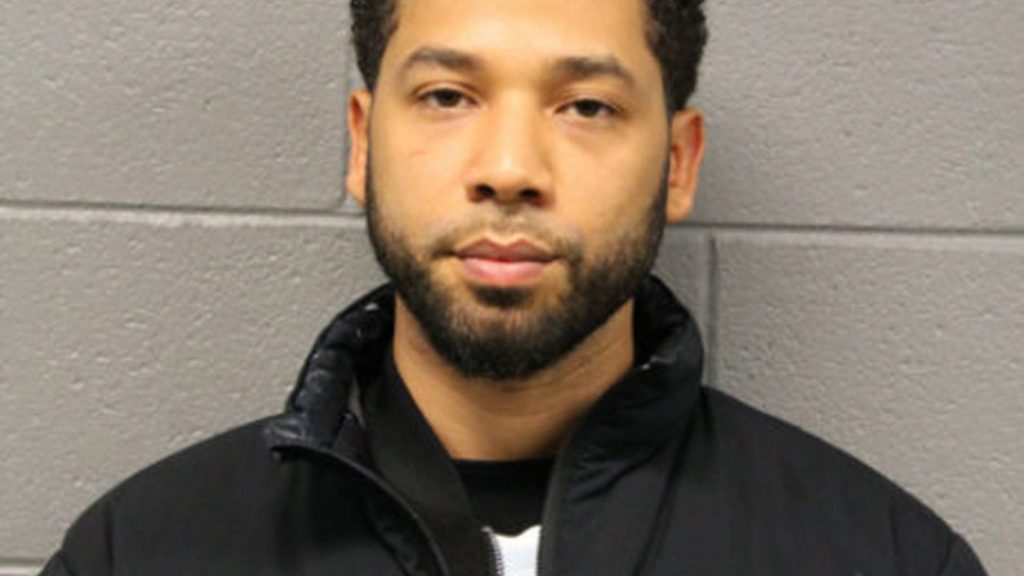
‘We are in a time – and rightly so – when we believe people who say that they have been victims of assault of any kind. We have to, because so many people have lived their pain, their lives unbelieved.’

In late January, Chicago was in the grip of a weather phenomenon known as a polar vortex. It is part of the emergency of global warming and, without being too technical, it is unusual and devastating.
Chicagoans are used to very cold winters with the wind chill factor well below zero, but this attack of weather caught everyone by surprise. Hot water thrown into the air froze instantly, creating a glistening sky; a good samaritan used her credit card to pay for hotel rooms for dozens of homeless people she did not know. It was that kind of cold.
The wind coming off Lake Michigan, and also the Chicago River, close by at points, can be refreshing in the summer but literally a killer in the dead of winter.
Chicago is also one of the most camera-surveyed cities in the world. There are cameras everywhere. Sometimes they work. Sometimes they don’t. But you can see them and often they help. Young black men in Chicago are under particular scrutiny for various reasons. They know it, too.
The posh downtown area of the city is especially protected by all sorts of overt and covert means. For African American men accused of anything there, an encounter with law enforcement and security guards can be more punitive, even fatal.
Add into this mix the fact that Chicago is what its outgoing mayor, Rahm Emanuel calls a ‘Trump-free zone’. Trump hates Chicago and the compliment is returned.
Enter this mise-en-scène the African American actor and singer, Jussie Smollett, born and raised in Los Angeles and star of a hit television series Empire.
Empire, a clever musical take on King Lear set in the world of the hip hop industry, featuring a mogul, his sons and scheming wife, has broken new ground. Not only does it show a wealthy African American with all the problems that big money brings, there is also an LGBT character, an openly gay son played by Smollett, who himself is out.
His character carries the heart of the show and has endeared him, especially, to black men grappling with their own sexuality within a community not always welcoming to it. Empire is filmed in Chicago and the city has taken the cast and crew to its heart. And so the news that Smollett had been assaulted in Chicago, in the downtown area, on January 29 caused outrage and immediate condemnation.
In his account, a rope was put around his neck and a chemical substance was poured over him by two men wearing ski masks and MAGA – ‘Make America Great Again – hats, who shouted ‘this is Maga country’.
We are in a time – and rightly so – when we believe people who say that they have been victims of assault of any kind. We have to, because so many people have lived their pain, their lives unbelieved. In the case of gay men, who are victims of assault more than we know, this becomes crucial.
The Chicago Police Department – responsible for policing a city with many unsolved murders, some from many years ago – pulled out all of the stops. They immediately set out to find the perpetrators. The entire city did likewise.
Smollett took to the airwaves, taking interview after interview. Presidential candidates jumped to defend him. But those people who know Chicago, and the area where the attack was alleged to have happened, began to be sceptical. And scepticism in a matter like this is not allowed. Yet it never went away, because the very narrative that Smollett himself put out there engendered it.
Last week, the CPD declared Smollett a suspect in a hoax of his own devising. The CPD claim that he hired two men, one his personal trainer, to stage an assault on one of those posh, downtown streets in the early morning of that polar vortex. He paid them, the police allege, to shout ‘This is Trump country’ and to put a noose around his neck. He also, the cops say, wrote the racist note that he said was sent to him at the Empire studios. Smollett has declared himself not guilty and, after a court hearing, his lawyers dismissed the case against him as ‘an organised law enforcement spectacle that has no place in the American legal system’.
Chicago is one of the cities of the Great Migration, that movement of black people out of the rural South, of murder, deprivation and poverty, to the North, where it was hoped life worked better. All of us born and raised in Chicago have or had families from Georgia, Tennessee, Mississippi, Alabama. The Deep South. The Old Confederacy.
As the police chief, himself a black man and a descendant of the Great Migration, read the charges against Smollett, his voice quivered when he came to what he called ‘the noose’. Lynching was, and still is, the crime of choice used by white supremacists against particularly black men.
In many shop and country stores in the South, and sometimes in the North, you could buy atrocity postcards, images of black men hanging from trees, often surrounded by the smiling God-fearin’ locals… with their children.
Smollett protests his innocence, and he is innocent, until found guilty by a jury of his peers in a court of law. That is how we work. But the court of public opinion has already condemned him.
My first reaction after the police charges were made was to worry that his friends may not realise that a man who is alleged to have perpetrated a hoax of this magnitude might be a suicide risk. Maybe, no matter what, his friends should gather around him, make sure that he does not harm himself, because no good purpose could come out of that. Maybe shield him as the LGBT community condemns him for putting its members at risk of not being believed because of his alleged shenanigans.
The police believe he staged the attack because he was ‘dissatisfied with his salary’, prompting the mayor to tell him to get a better agent, if that was his motive. And the mayor should know about these things – the hectic Hollywood life of one of his own brothers has formed an element of another hit television show, Entourage.
If Smollett is found guilty of what he is accused of doing I think that we are beginning to see the exhibition of what may be a disease in our digital age: narcissism.
Social media gives us all a voice. All of us. In the immortal line written by the director Joseph Mankiewicz for his film All About Eve, and brilliantly delivered by Marilyn Monroe as an explanation as to why her character referred to a butler as ‘waiter’, she replies: ‘Someone’s name could be ‘butler’.’
This is an example of thought as being brilliant sui generis: of itself. Because all thought is of equal importance and intelligence in the social media world . Right up there with Voltaire.
So there has to be, for a celebrity, another level of visibility. The archetype. Liam Neeson – with his recent tale of rage – may have chosen one: The martyr, the man who exposes his own sin – real or imagined – in order to save us.
And Smollett may have chosen, since he is a member of not one, but two oppressed minorities: The messiah, who dies and rises again.
We may find that the motive for the alleged behaviour of Jussie Smollett, if he is found to be guilty, was that he simply wanted us to notice him more. In this Age Of Narcissism.
Warning: Illegal string offset 'link_id' in /mnt/storage/stage/www/wp-includes/bookmark.php on line 357
Notice: Trying to get property 'link_id' of non-object in /mnt/storage/stage/www/wp-includes/bookmark.php on line 37







